Description
ABSTRACT
The Decision of The Supreme Court in Abdulahi v Adetutu: Has it Repudiated the Court’s Adherence to Judicial Precedent?
Emmanuel A. Ubua, J*
The doctrine of precedent or stare decisis is an integral part of Nigerian Law and it places an obligation on every court of law to follow its decision in an earlier case and that of either a higher court or court of coordinate jurisdiction when subsequently determining a case with similar facts or issues as the earlier one. This ensures orderliness, discipline and predictability in the adjudicatory process. The Supreme Court of Nigeria is not exempt from this practice. This paper seeks to examine the recent decision of the apex Court in Abdulahi v Adetutu which appears to have repudiated the doctrine by its unceremonious departure from the precedent set by the same court in Benjamin v Kalio, another contemporary decision which nullified the old technical and pernicious rule that an unregistered registerable land instrument was inadmissible in evidence. The rule was considered unconstitutional and inconsistent with the Evidence Act. Deploying the doctrinal research method and the aid of case law, statute and textbooks, this paper discusses the essence of the doctrine and its application to cases, paying particular attention to cases related to the admissibility or otherwise in evidence of unregistered registerable land instruments. The two focal cases have been analysed in depth. The paper has found that while Benjamin v Kalio accords with the constitution’s provisions and need for substantial justice, Abdulahi v Adetutu was decided in error and inclined to a technicality. Furthermore, it has been found that though the case of Abdulahi v Adetutu is later in time and has departed from Benjamin v Kalio, it has neither altered the rule nor repudiated the precedent enunciated thereby. This is because Abdulahi v Adetutu did not expressly reverse Benjamin v Kalio on the subject or overrule it. Besides, while Benjamin v Kalio was decided by the full panel of 7 Justices of the Supreme Court, Abdulahi v Adetutu was decided by a panel of 5 Justices, making it impossible for the latter case to reverse the earlier one. However, the paper concludes by asserting that the existence of the two conflicting decisions leaves the law in this area fluid and uncertain. Consequently, it has recommended an urgent review of the subject and the affirmation of the decision in Benjamin v Kalio, which is in tune with the constitution and substantial justice that the courts are now inclined towards.
Keywords: Supreme Court of Nigeria, Coordinate Jurisdiction, Judicial Precedent
- J. BL, LL.M. Hon. Judge of the High Court of Cross River State, Nigeria

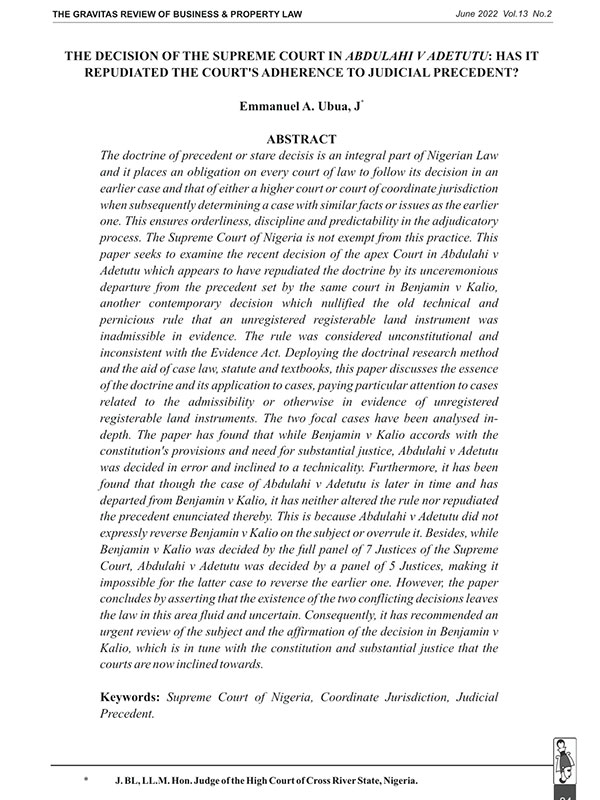
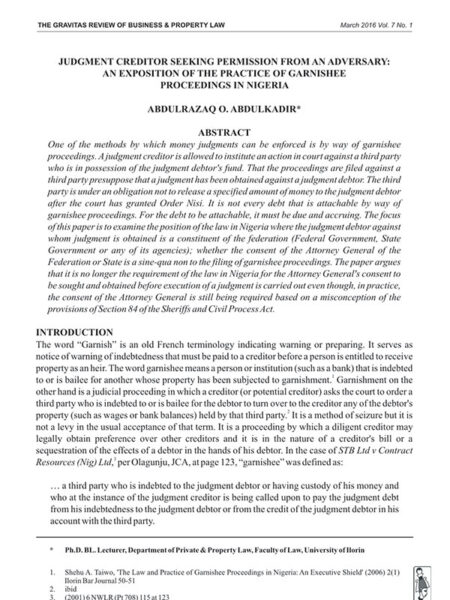
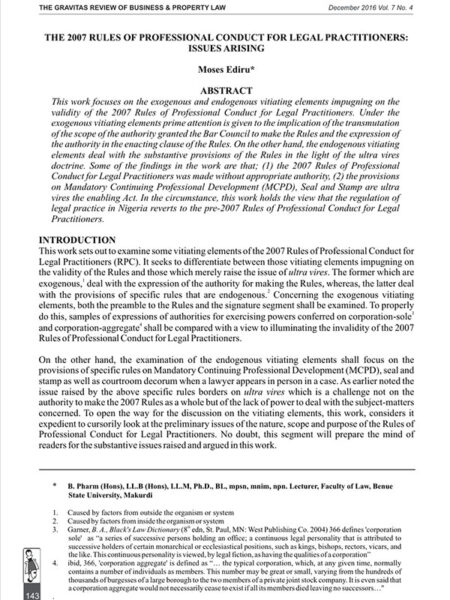
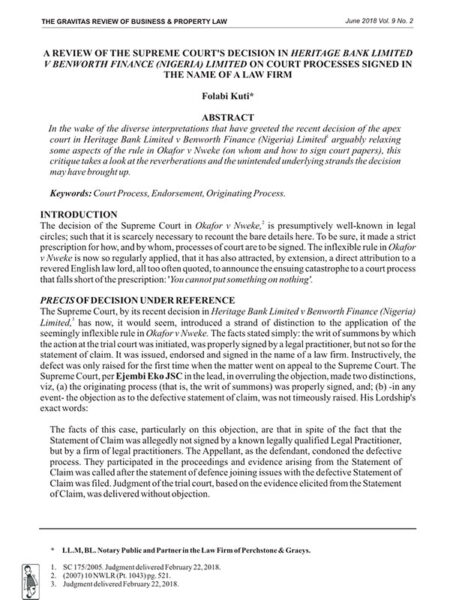
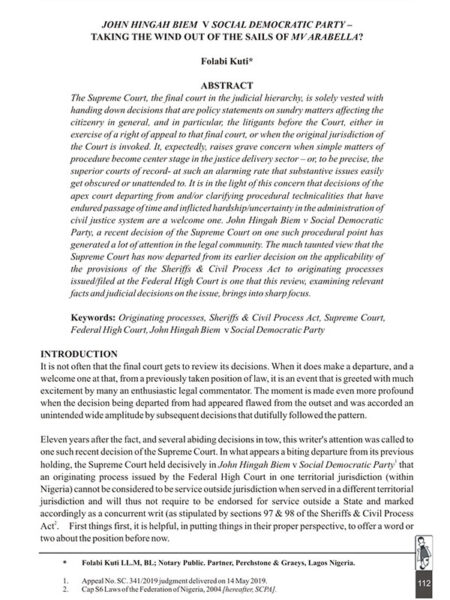


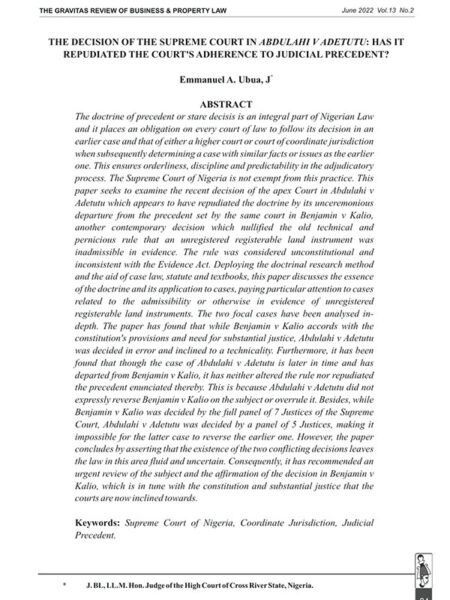
Reviews
There are no reviews yet.